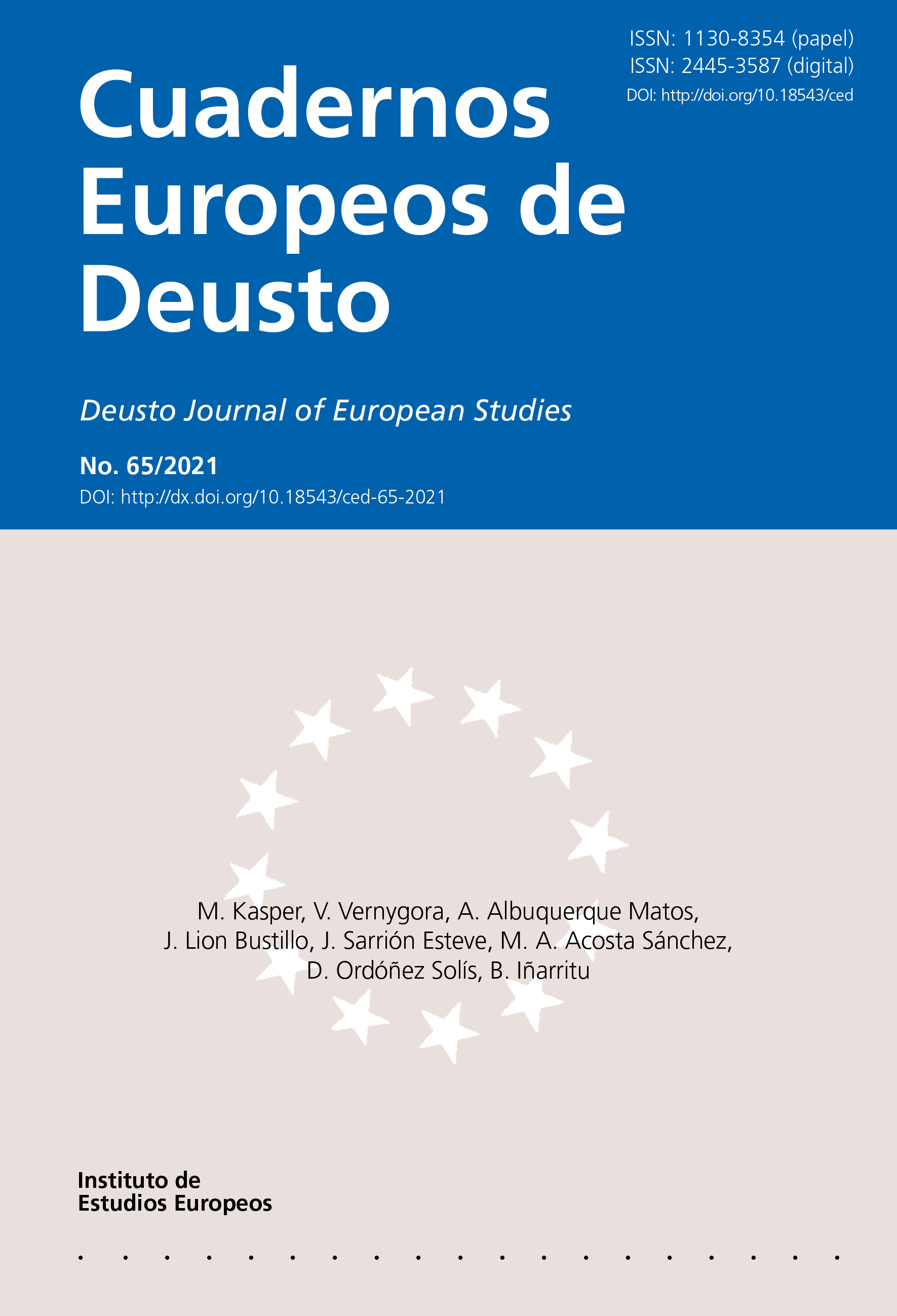The EU’s cybersecurity: a strategic narrative of a cyber power or a confusing policy for a local common market?
Abstract
In the last decade, cybersecurity has swiftly turned into a strategic issue and became an important horizontal policy area in the EU, which is treated in this article as one of the four contemporary political empires. These days, the policy arguably encompasses both internal and external aspects, often making it difficult to assess the level of its actual effectiveness as well as outreach. Initially, the EU’s introverted vision on the issue drove the policy to focus on cyber resilience and strategic autonomy. Evidently, the EU’s strategic narrative that could assist it in leading the process of creating an open, free, stable and secure cyberspace in the digital decade, in the context of international security, is emerging. Thus, this contribution is to test the argument that the EU, utilizing an imperial paradigm (consciously or not), is gradually becoming a global steering power in cybersecurity. In this article, firstly, we identify and examine the process of formation of the EU’s narratives about (its) cyber power. Secondly, we establish a discussion framework to highlight the methodological relevance of the imperial paradigm, cyber power Europe and Strategic Narrative Theory for a multidisciplinary debate on global geo-strategic redesign, in which the EU takes part. Thirdly, we look into bilateral and multilateral forums and processes that deal with cybersecurity and in which the EU participates, in order to understand more specifically how the EU is projecting its cyber-power narratives internationally and how cybersecurity-associated challenges impact current dynamics in other policy domains in the field of international relations.
Recibido: 20 noviembre 2020
Aceptado: 18 mayo 2021
Downloads
The author grants to the Publisher the distribution, public communication, and reproduction rights of her/his work subject of publication in Deusto Journal of European Studies (DJES), whichever the media may be, including the permission to include it in the databases where this Journal is indexed and in the institutional repository of the Universidad de Deusto.
Upon its publication, the content of any Issue of Deusto Journal of European Studies (DJES) can be accessed, read, downloaded, copies, and distributed freely for non-commercial purposes and in accordance with any applicable copyright legislation.
The content of Deusto Journal of European Studies (DJES) can be subsequently published in other media or journals, as long as the author clearly indicates in the first footnote that the work was published in Deusto Journal of European Studies (DJES) for the first time, indicating the Issue number, year, pages, and DOI (if applicable). Any other use of its content in any medium or format, now known or developed in the future, requires prior written permission of the copyright holder.
The content of the work published in Deusto Journal of European Studies (DJES) is each author's sole responsibility. The authors assume the responsibility of obtaining all the necessary licenses for the reproduction in their manuscripts of any text, material or illustration coming from another author, institution or publication. The liabilities that may arise from complaints for publishing plagiarised articles are the sole responsibility of the author.


3.jpg)
2.jpg)
2.jpg)
2.jpg)
2.jpg)
2.jpg)







